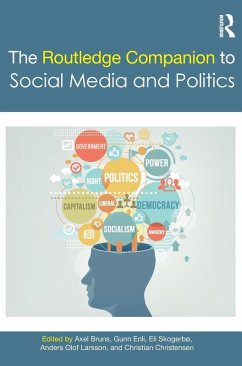
The Routledge Companion to Terrorism Studies
New Perspectives and Topics
Versandkostenfrei!
Versandfertig in 1-2 Wochen
261,99 €
inkl. MwSt.
Weitere Ausgaben:

PAYBACK Punkte
131 °P sammeln!
Although the literature on terrorism is vast, there are many gaps in it. This book helps to fill these lacunae with entries from top terrorism scholars and counterterrorism practitioners in the world.













